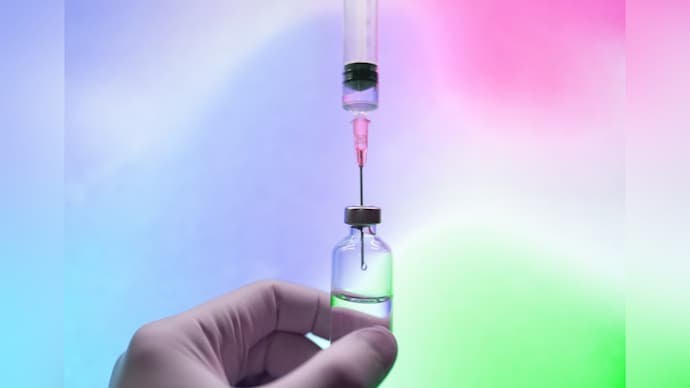By The Sampadak Express
A new immunotherapy drug is giving cancer patients hope and helping many avoid surgery, chemotherapy, and radiation entirely.In a groundbreaking clinical trial, a drug called dostarlimab has shown stunning results in treating certain cancers, offering a less invasive, highly effective alternative to traditional cancer treatments.
Maureen Sideris, diagnosed in 2022 with a tumour at the junction of her esophagus and stomach, feared not death but losing her voice. She dreaded the idea of surgery and its side effects. But instead of undergoing surgery or chemotherapy, she received six months of immunotherapy at Memorial Sloan Kettering Cancer Center (MSK) in New York.
Today, Maureen is cancer-free.
She is one of 84 patients whose tumours completely disappeared after receiving dostarlimab in a phase 2 clinical trial, according to results presented at the 2025 Annual Meeting of the American Association for Cancer Research (AACR) and published in the New England Journal of Medicine.
The trial, led by MSK oncologists Dr. Andrea Cercek and Dr. Luis Diaz Jr., enrolled 103 patients with early to locally advanced cancers including rectal, colon, esophageal, liver, urinary, and gynecologic tumours. All patients shared a genetic feature called mismatch repair deficiency (MMRd), which makes tumours more vulnerable to the immune system.

That vulnerability is key. Dostarlimab, a checkpoint inhibitor sold under the brand name Jemperli, helps the immune system identify and destroy cancer cells that would otherwise evade detection.
The results are remarkable:
All 49 patients with rectal cancer saw their tumours vanish a 100% complete response rate.
Of the remaining 54 patients with other MMRd cancers, 35 also achieved full remission a 65% success rate.
In total, 84 of the 103 patients experienced a complete response.
Crucially, 82 of them avoided surgery altogether.“
This study shows that immunotherapy can replace surgery, radiation, and chemotherapy for mismatch repair-deficient solid tumors,” said Dr. Cercek. “It could help patients preserve their organs and avoid the harsh side effects of conventional treatments.”
Traditionally, many solid tumours are treated with a combination of surgery, chemotherapy, and radiation methods that can cause serious side effects, from infertility and incontinence to loss of sexual function and long recovery times.
This trial suggests a new path forward for patients with the MMRd mutation.
The study also introduced a cutting-edge monitoring tool: ctDNA testing (circulating tumour DNA). This liquid biopsy detects microscopic DNA fragments from tumours in the bloodstream. Using a technology called Haystack MRD, researchers could determine within just 1.4 months whether the cancer had disappeared.
This could revolutionize cancer monitoring, making it faster, less invasive, and more accessible especially for tumours deep inside the body.
While not all cancer patients will benefit from this therapy, those with the MMRd mutation may now have a powerful new option one that avoids the painful legacy of traditional treatments.
With these promising results, researchers now aim to test the drug across more types of cancer and possibly reshape cancer care as we know it.



